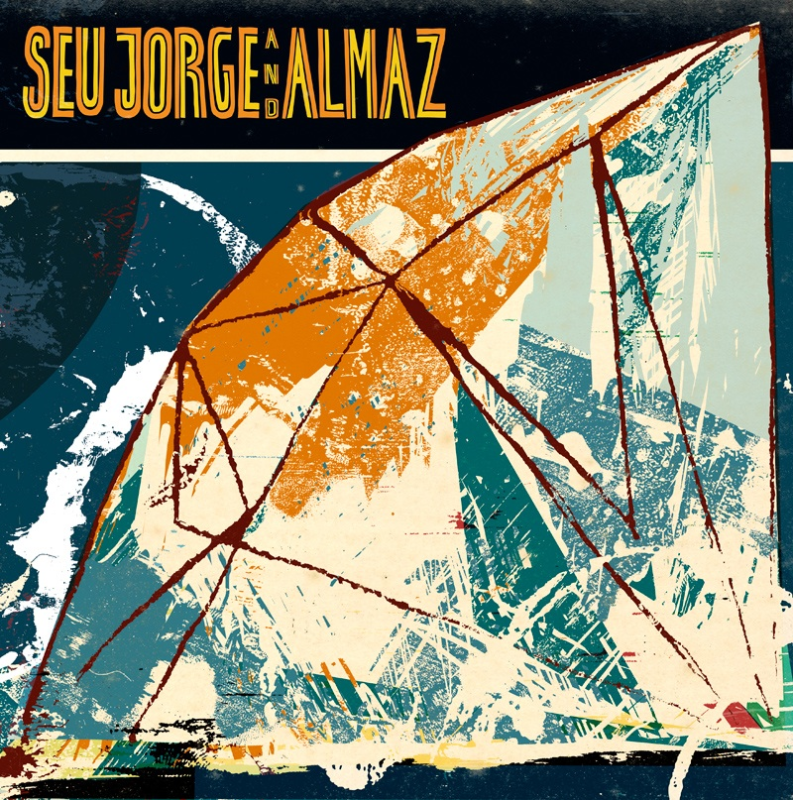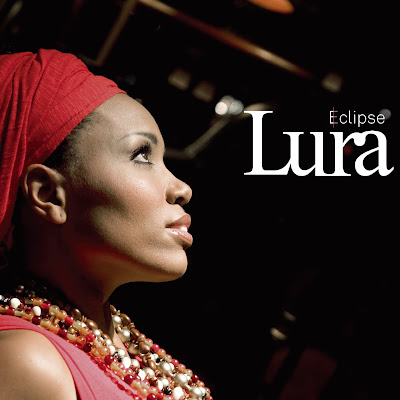This is comical, really. I usually do this post right before year's end, so this was due back in December of 2011. But certain life events have prevented me from listening to many of last year's albums, let alone write about them. Would you believe it that only last week I finished listening to all of the 2011 albums I had set aside, almost a full year after it's release? Comical, really. But 2011 was a year in which a lot of exciting albums were released, some of them personally more important than others. Aline Frazão's debut album, Clave Bantu, was, of course, one of them. As were MCK's Proibido Ouvir Isso and the second installment of the Inna Week series, Lover's Rock.
It was also a year in which Lusophone music continued to take its place in the world stage. Stellar new singers such as Luísa Sobral emerged right here in the United States as opposed to her native Portugal, and was nominated to various awards during her stay in Boston's Berklee College of Music; Buraka continued to sell out concerts around the world, while Batida and Terrakota continued to play in huge musical festivals around Europe; Conjunto 70 was invited to play at WOMEX.
Below you will find a shortlist of what I think are the best Lusophone albums of 2011. As I've said before, I am no professional music critic, have never studied music seriously, and have not heard ALL the Lusophone albums released in 2011; thus, this should not be considered a definitive ranking. But as a man who consumes, breathes and lives Lusophone music, and who unashamedly lives in a Lusophone music bubble, this is my list:
- World Massala, by Terrakota (Portugal)
- Sonhando Devagar, by Kassin (Brazil)
- Chapa '97, by Cacique '97 (Portugal/Moçambique)
- Clave Bantu, Aline Frazão (Angola)
- A Coruja e o Coração, by Tiê (Brazil)
- Um em Um Milhão, by CFK (Angola)
- Lovers Rock Inna Week, by Grasspoppers (Portugal)
- Proíbido Ouvir Isso, by MCK (Angola)
- Dor de Mar, by Tcheka (Cape Verde)
- Komba, by Buraka Som Sistema (Portugal/Angola)
- The Cherry on My Cake, by Luísa Sobral (Portugal)
- Nó na Orelha, by Criolo (Brazil)
- Música pra Churrasco, Vol. 1, by Seu Jorge (Brazil)
- Pitanga, by Mallu Magalhães (Brazil)
Isto até chega a ser cómico. Normalmente faço este post mesmo antes do fim d'ano, por isso deveria ter saído em Dezembro de 2011. Mas certos acontecimentos familiares, nacionais e pessoais foram adiando a própria escuta dos álbuns em questão; sem escuta prévia é impossível sequer escrever sobre as delícias sonoras deste ano. Por exemplo, só na semana passada é que finalmente acabei de ouvir em condições todos os álbuns de 2011 que tinha pre-seleccionado. Cómico! Mas 2011 foi um ano que viu nasceu muitos álbuns de boa qualidade, alguns deles mais próximos ao meu coração que outros. Falo, por exemplo, do Clave Bantu da amiga Aline. Mas há outros, como o Proibido Ouvir Isso do mano Kapa, e o segundo projecto Inna Week, o Lover's Rock.
Foi também um ano em que a música lusófona continuou a crescer mundialmente e a expandir a sua audiência e nível de influência. Artistas da "nova vaga", como a portuguesa Luísa Sobral surgiram aqui mesmo nos Estados Unidos em vez de Portugal ou outro país lusófono; a Luísa foi nomeada para vários prémios enquanto ainda frequentava a Berklee College of Music em Boston. Os Buraka então, já nem se fala. Continuam a lotar salas à volta do mundo. Grupos como a Batida e os Terrakota andam a dar um sabor lusófono a muitos festivais de verão espalhados pela Europa; na banda, o Conjunto 70 tocou no WOMEX.
Acima está a minha lista do que penso ser os melhores álbuns lusófonos de 2011. Como tenho sempre dito, não só crítico de música profissional, nunca estudei a música seriamente, e não ouvi TODOS os álbuns lusófonos que saíram em 2011; por isso, isto não pode ser considerada uma lista definitiva. Mas como um homem que consome, respira e viva música lusófona, dia após dia, mês após mês e ano após ano, pra depois vir aqui escrever sobre ela, eis a minha lista, acima.
E tu, quais albuns achaste verdadeiras obras de arte? Em breve, o ranking dos 10 melhores álbuns!






















 Everybody Loves the Sunshine
Everybody Loves the Sunshine



























